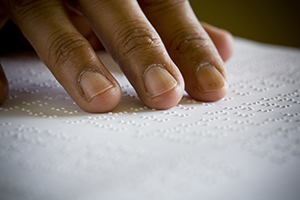Latest News Archive
Please select Category, Year, and then Month to display items
12 October 2020
|
Story Arina Engelbrecht
|
Photo Supplied
 Arina Engelbrecht from Organisational Development and Employee Well-being believes physical activity has a number of benefits for one’s health, including stress relief.
Arina Engelbrecht from Organisational Development and Employee Well-being believes physical activity has a number of benefits for one’s health, including stress relief.
Being physically active plays a big role in preventing the development of mental-health problems and in improving the quality of life of people experiencing mental-health problems.
Treatment for depression
Physical activity can be an alternative treatment for depression. It can be used as a stand-alone treatment or in combination with medication and/or psychological therapy. It promotes all kinds of changes in the brain, including neural growth, reduced inflammation, and new activity patterns are formed that promote feelings of calm and well-being. It releases endorphins – powerful chemicals in the brain that energise your spirit and make you feel good.
Physical activity can be very effective in relieving stress. Research in adults has found that physically active individuals tend to have lower stress levels compared to individuals who are less active. It also leads to improved sleep. When a person sleeps better and feels more rested, overall quality of life improves. They cope better with daily life stressors.
Reduce Alzheimer's risk
Regular physical activity can reduce your risk of developing Alzheimer's disease by up to 50%. It can also slow down further deterioration in those who have already started to develop cognitive problems. It stimulates the brain’s ability to maintain old connections as well as to make new ones.
A study asked people to rate their mood immediately after periods of physical activity (e.g. going for a walk/run, cycling, doing housework) and periods of inactivity (e.g. reading a book or watching television). Researchers found that participants felt more content, more awake, and calmer after being physically active compared to after periods of inactivity.
In conclusion, people who are physically active feel a sense of well-being, feel more energetic throughout the day, sleep better at night, have sharper memories, and feel more relaxed and positive about themselves and their lives.
“Being physically active not only changes your body, it changes your mind,
attitude, and your mood.” – Arina Engelbrecht
First Rand Foundation contributes funding towards students with disabilities
2017-01-02

Photo: iStock
Bursary funding for eight students with disabilities at the University of the Free State was recently approved by the First Rand Foundation. The grant of R2 497 440 will be paid over three years: R800 000 (2016/17), R824 000 (2017/18), and R873 440 (2018/19).
This grant from the First Rand Tertiary Education Fund is a result of the negotiations between the UFS Office for Institutional Advancement and the First Rand Foundation (FRF).
Qualifying students with disabilities will be encouraged to apply for bursaries according to criteria and requirements set by the First Rand Foundation. The selection process will be handled by a panel from the UFS. The Centre for Universal Access and Disability Support (CUADS) at the UFS will be instrumental in the process of identifying students with disabilities who meet the criteria and requirements for funding.
CUADS already have a system in place to support students with disabilities in their studies and during exams. Students also have access to specialised exam and test venues for alternative test and exam procedures, as well as computer facilities.
Specialised support services include an amanuensis (scribe) service during tests and exams, accommodating extra time, individual tutor sessions provided in collaboration with the Centre for Teaching and Learning, South African Sign Language interpreter coordination, provision of accessible study material, and individual disability support.
“The centre aims to ensure that the university increasingly becomes a universally accessible environment that is welcoming and accepting to people with diverse abilities.”
According to Martie Miranda, Head of CUADS, the centre aims to ensure that the university increasingly becomes a universally accessible environment that is welcoming and accepting to people with diverse abilities. “Therefore disability awareness training and advocacy within the UFS, and specifically among staff members, is one of our priorities,” she said.
According to Thandeka Rantsi from the FRF, the company will furthermore support students in CUADS with regards to the needs ensuing from the #feesmustfall protests. “Exactly R34 000 was approved by the FRF for 14 students towards residence and meal expenses, as well as scribe and reader assistance during additional assessments,” she said.